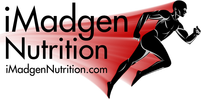Whether it is strictly adhering to a gym regimen or training for the Olympics, athletes must have a diet plan that caters to their demanding physical lifestyle. Cutting processed sugars and boosting protein are usually the first ideas that come to mind, but in reality, building an athlete diet plan takes a comprehensive approach. There are huge mistakes athletes tend to make when it comes to their nutrition and if you consider yourself an athlete, it is best to get to know these mistakes so you can avoid them in your own athletic eating plan.
Mistake #1: Not enough proteinWhy? It is easy to assume that an occasional steak, lean cuts of chicken, and plenty of fish will give you the protein boost you need, but the fact of the matter is protein is in high demand by your body when you are an athlete, and eating these foods can be difficult at certain times of the day when it is critical to consume some protein (e.g. in the locker room).
Fix: Supplement your athlete diet plan with a pure protein source like Whey Protein Powder. Whey protein actually is proven to boost muscle hypertrophy and speed the protein synthesis process, which helps your body recover quickly from stress after working out or playing hard.
Mistake #2: Treating food as a reward and not a requirement.Why? Too many athletes choose to look at the food that they intake while they are in training as something they can have if they do X-number of miles or spend so many minutes in the gym. Food, when you are training, should never be something that you reward yourself with. This train of thinking is often known as the "Run to Eat" mentality. Instead, you should be treating food like your fuel, which would mean you "Eat to Run."
Fix: When you are paying close attention to your nutritional intake and have created a comprehensive diet plan, eating before you work out is actually just fueling your performance. Your body needs the fuel provided by food for endurance and stamina. Eating only after you workout can actually compromise your efforts when you are trying to build lean muscle. Make sure you fuel your body well in advance of major training sessions or even the big game.
Mistake #3: Trying to eliminate carbohydrates from your diet as much as possible.Why? When you are in the process of endurance training, carbohydrates are not your enemy. Many athletes mistakenly make a connection between carbs and fat and assume that all carbs should get kicked to the curb. However, carbs serve a vital purpose and deserve a rightful place in any athletic diet plan. In fact, they actually have little to do with fat. In the body, carbs are utilized at high intensity training when body fat cannot be utilized. This will keep you energized during training, both physically and mentally.
Fix: Instead of avoiding carbs like they are a bad thing, embrace them, but be careful to embrace carbs in the right form and amount. A few examples of good carbs include:
Fix: Supplement your athlete diet plan with a pure protein source like Whey Protein Powder. Whey protein actually is proven to boost muscle hypertrophy and speed the protein synthesis process, which helps your body recover quickly from stress after working out or playing hard.
Mistake #2: Treating food as a reward and not a requirement.Why? Too many athletes choose to look at the food that they intake while they are in training as something they can have if they do X-number of miles or spend so many minutes in the gym. Food, when you are training, should never be something that you reward yourself with. This train of thinking is often known as the "Run to Eat" mentality. Instead, you should be treating food like your fuel, which would mean you "Eat to Run."
Fix: When you are paying close attention to your nutritional intake and have created a comprehensive diet plan, eating before you work out is actually just fueling your performance. Your body needs the fuel provided by food for endurance and stamina. Eating only after you workout can actually compromise your efforts when you are trying to build lean muscle. Make sure you fuel your body well in advance of major training sessions or even the big game.
Mistake #3: Trying to eliminate carbohydrates from your diet as much as possible.Why? When you are in the process of endurance training, carbohydrates are not your enemy. Many athletes mistakenly make a connection between carbs and fat and assume that all carbs should get kicked to the curb. However, carbs serve a vital purpose and deserve a rightful place in any athletic diet plan. In fact, they actually have little to do with fat. In the body, carbs are utilized at high intensity training when body fat cannot be utilized. This will keep you energized during training, both physically and mentally.
Fix: Instead of avoiding carbs like they are a bad thing, embrace them, but be careful to embrace carbs in the right form and amount. A few examples of good carbs include:
- Starchy vegetables, such as potatoes and lentils.
- Whole grains, like whole wheat bran or steel-cut oatmeal.
- Fiber-rich fruits, such as bananas and oranges.


 RSS Feed
RSS Feed





